"We currently have five regions and the forums will move to different locations within each region every year, to engage with a wide variety of non-OCIMF members and the regional OCIMF membership"
Director's Log

Last year OCIMF reviewed its Strategy 2020, which was launched in 2012 and is designed to guide us through to 2020.
This mid-term review resulted in a few course corrections to ensure OCIMF continues to deliver effectively against its mission and objectives (engage – promote – advocate). The Regional Panels, which focused on engaging with regional membership, have been replaced with Regional Marine Forums that devote one day to engaging with the marine industry in the region where the event is being held. We currently have five regions and the forums will move to different locations within each region every year, to engage with a wide variety of non-OCIMF members and the regional OCIMF membership. Our first Regional Marine Forum was held in Tampa, Florida; you can read a report on that below. Going forward we will be holding five forums each year – one in each region - where we will:
- Engage the marine industry to share with them the latest OCIMF activity and thinking.
- Promote our operating guidance, recommendations and best practices.
- Advocate continuous improvement in industry safety and environmental performance.
Last year OCIMF created a new working group to focus on the growing risks associated with the increasing connectivity between ship and shore. July has seen the first two results from this Cyber Working Group. First, I would like to draw your attention to the Be Cyber Aware at Sea film that OCIMF collaborated on with NSSL Global, Teekay and The Standard Club. You can view the film via the link provided in the article below. Secondly, OCIMF has collaborated on a free-to-download document, The Guidelines on Cyber Security Onboard Ships, which is available from the OCIMF website www.ocimf.org/library/information-papers. Cyber is a growing area of concern for all those involved in shipping. These productions aim to improve ship safety through raising awareness and the provision of sound and practical advice to ship operators and mariners.
Stay safe,

Andrew Cassels
Director OCIMF
Do you have news that you'd like to share with our readers? If so email
Sir Richard Paniguian
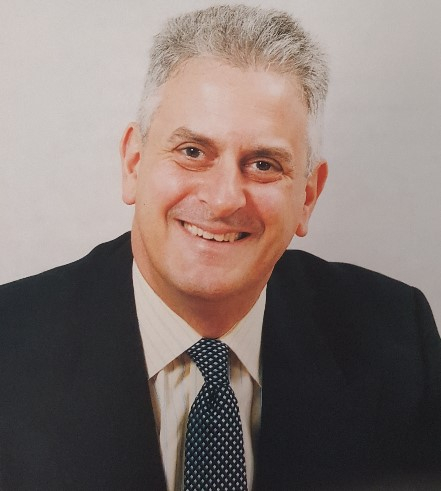
The OCIMF Secretariat were sad to learn of the death of Sir Richard Paniguian on 25 June.
Sir Richard worked for BP from 1971 to 2008 and was Chairman of OCIMF from 1999 to 2002. In the December of the year he took on the role at OCIMF, the Erika broke up off the Brittany coast and much of the next year was spent responding to the incident and working towards legislative proposals. Sir Richard was also at the helm during major developments to the SIRE programme, including the release of the Inspector Training and Accreditation Programme in 2000 and the ISO certification in the same year. The industry is safer thanks to his contribution and our thoughts are with his family at this sad time.
Joining ReCAAP ISC in the fight against piracy
OCIMF and the Regional Cooperation Agreement on Combating Piracy and Armed Robbery against Ships in Asia Information Sharing Centre (ReCAAP ISC) signed a Memorandum of Understanding (MOU) on 24 July.
The MOU will see the two organisations cooperate to safeguard the interests of ships and seafarers operating in Asia.
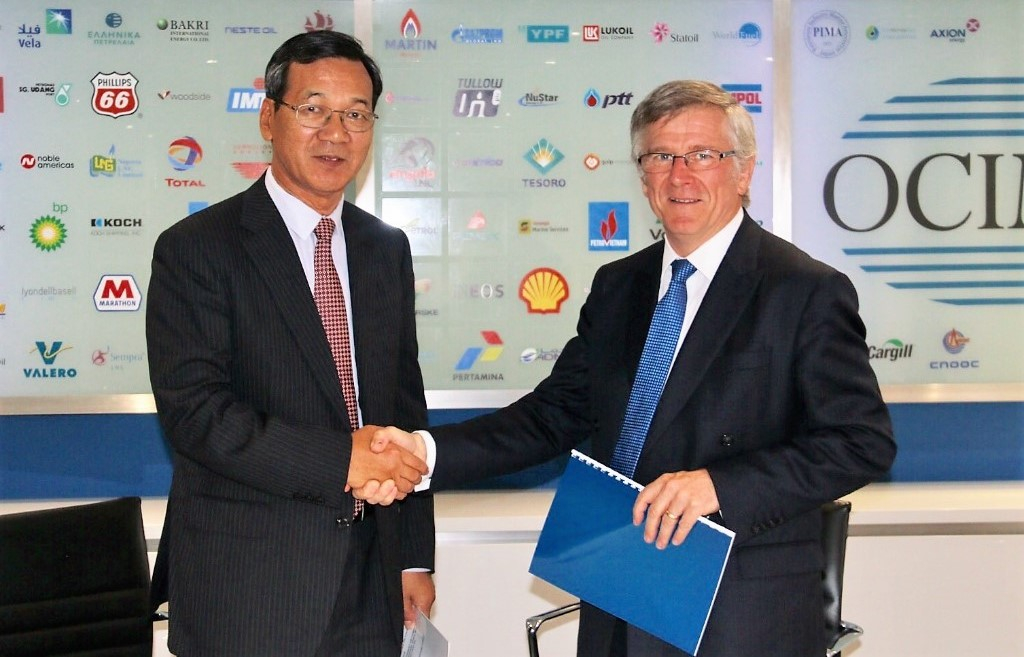
ReCAAP Information Sharing Centre Executive Director Masafumi Kuroki (L) and OCIMF Director Andrew Cassels affirm shared interest and collaboration with the Memorandum of Understanding.
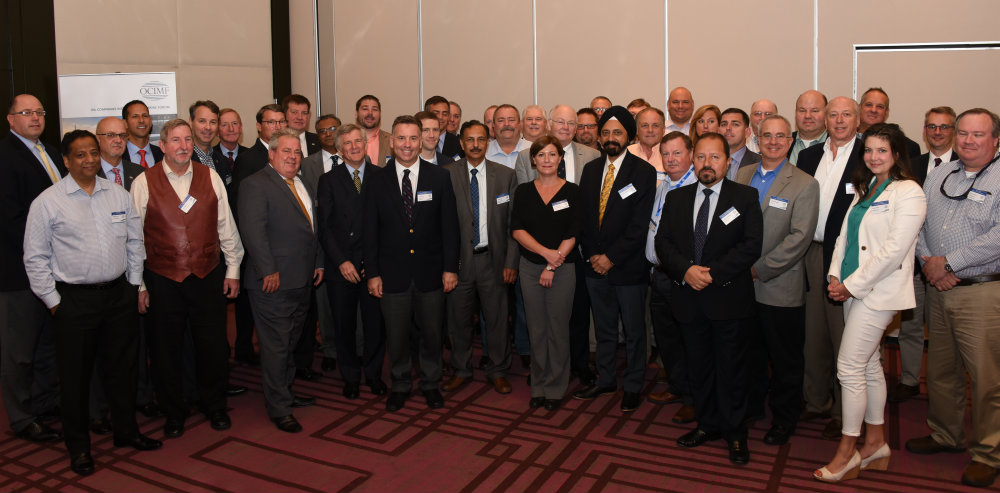
North America Regional Marine Forum
The first Regional Marine Forum was held 11–12 July in Tampa, Florida, USA.
The event was a success and OCIMF was pleased to host many non-OCIMF members on the first day, which was an open session. Attendees for both days came from several areas of the USA, as well as internationally from Canada and Mexico.
OCIMF Regional Champion Jan Ziobro (Shell) and the OCIMF Secretariat gave presentations on the current work within OCIMF, e.g. revisions to the Mooring Equipment Guidelines (MEG), the recent release of the third edition of the Tanker Management and Self Assessment (TMSA3) and OCIMF programmes. The attendees challenged the panel with questions and comments on the programmes OCIMF offers and specific questions about SIRE, inspector accreditation (OVID and SIRE), the Vessel Inspection Questionnaire (VIQ) and the upcoming changes in MEG. Both OCIMF and non-OCIMF members found the open session beneficial and discussions continued into the evening at the networking event, which was also well received.
If you are interested in giving a presentation at the next North America Regional Marine Forum, please send us details by filling in this form. To register your interest in attending, click the button below.
If you have any queries, contact
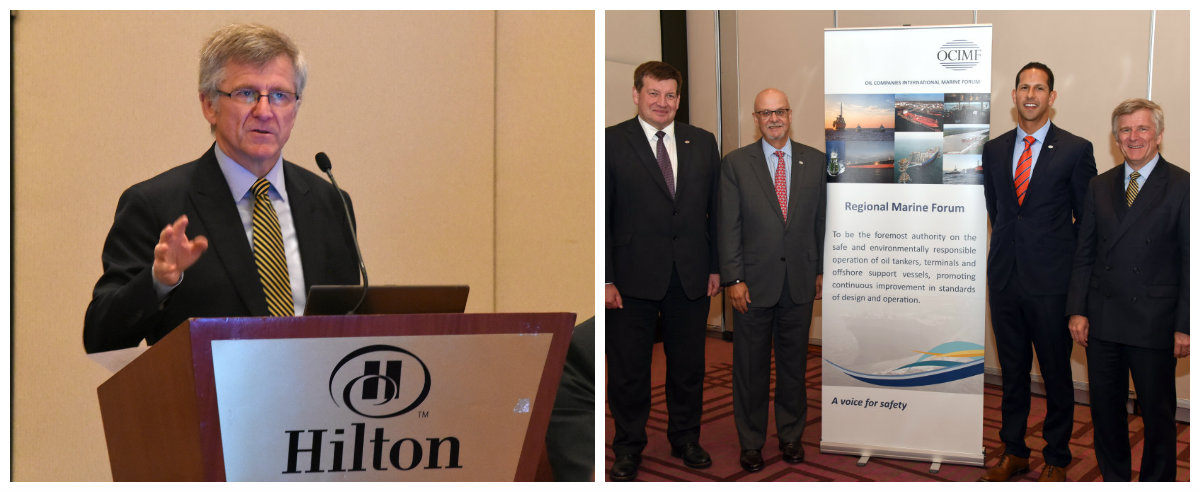

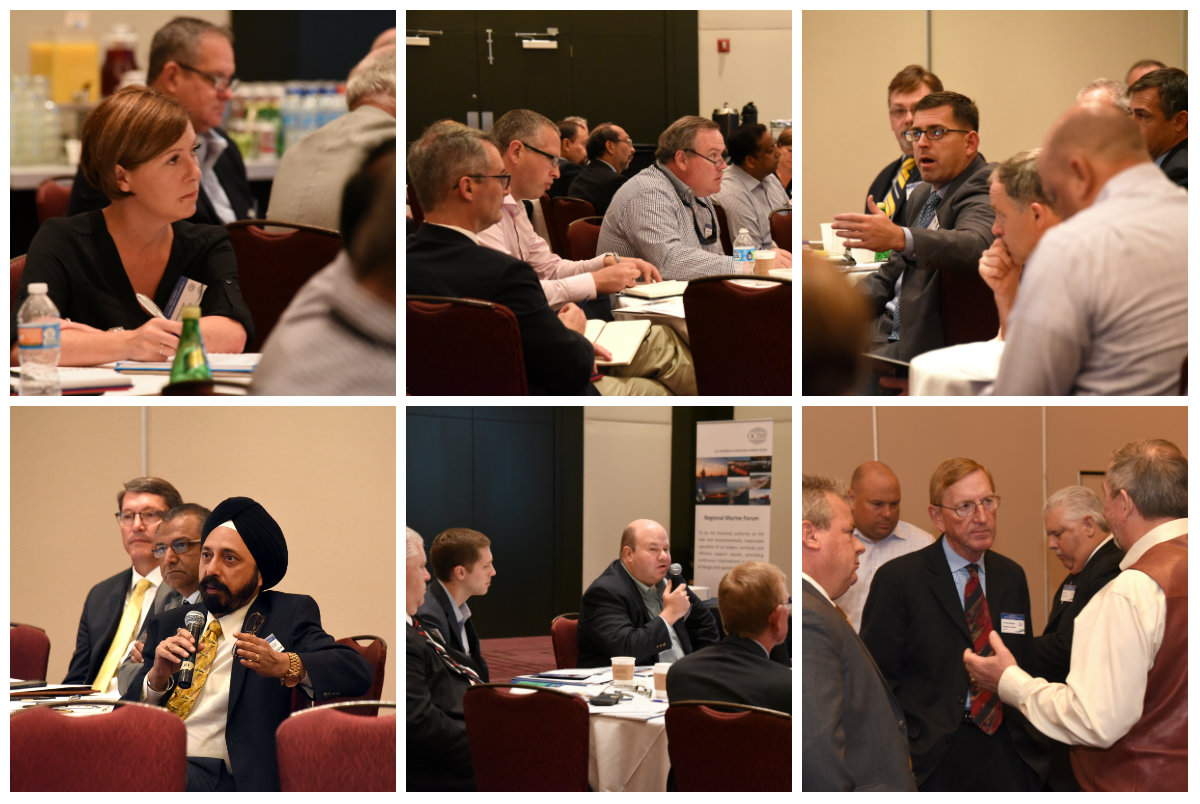
North America Regional Marine Forum - register your interest
Middle East Regional Marine Forum - dates
The OCIMF Middle East Regional Marine Forum will take place in Dubai, United Arab Emirates on 18-19 September 2017 and will be held in conjunction with the 10th ENOC Marine Workshop.
This is the second of the new-look Regional Marine Forums, which were previously called Regional Panels. The new format allows both OCIMF members and invited industry guests to come together to share best practices and initiatives, as well as to keep up-to-date with developments at OCIMF.
If you have any queries, contact:
Middle East Regional Marine Forum - register your interest
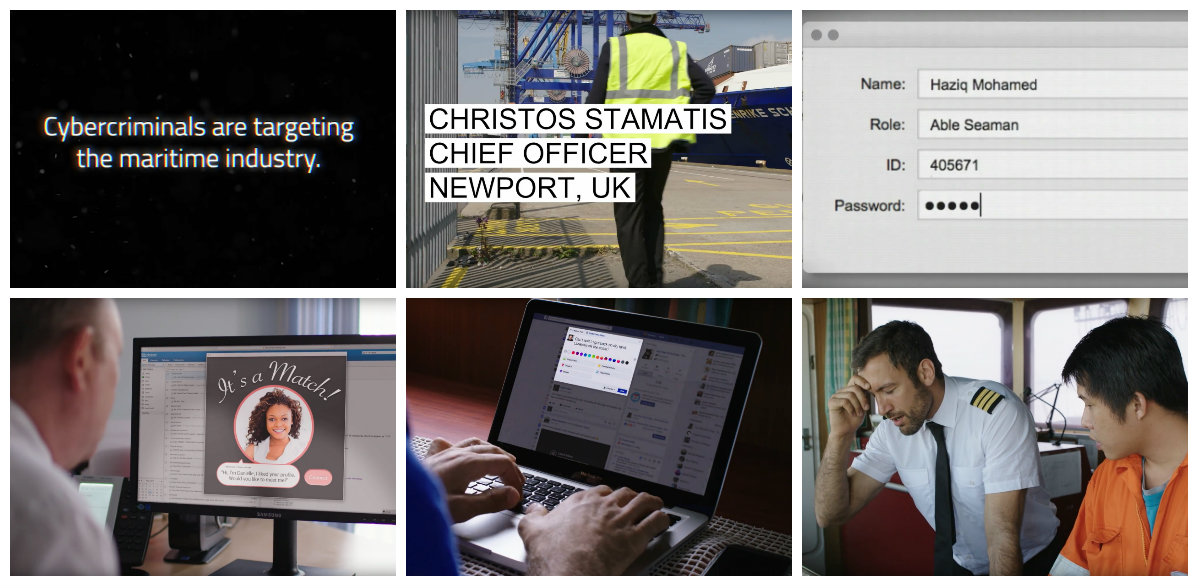
Be Cyber Aware at Sea - film
OCIMF has worked with the global maritime cyber security awareness campaign “Be Cyber Aware at Sea”, other industry sponsors and Fidra Films to produce a new film highlighting the vital and increasing importance of cyber security to the maritime industry.
The film uses real-life case studies to show how easy it is for cyber criminals to target individual employees, who are often the weakest link in the security chain. The film is educational, entertaining and easy to share via social media. It gives tips to help employees avoid being an easy target for cyber criminals and is supported by six shorter films looking at specific risks: personal devices; social media; sextortion; passwords; safe browsing and phishing.
Andrew Cassels, OCIMF Director, supports the release: "This film starts to tackle the most vulnerable element of cyber protection: the human element. Educating our mariners is the first line of defence; they all work in social media with ease but need to understand how innocent actions can cause harm to wider networks and systems. Wide distribution of this film and the supporting material will start to prepare industry for the cyber challenges ahead."
The film is free to view. We encourage newsletter readers to watch the film and share it with colleagues.
View the main video below:
Click here to view on YouTube. The six supporting videos are here.
The BeCyberAwareAtSea campaign website is:www.becyberawareatsea.com
Contact Group on Piracy off the Coast of Somalia
OCIMF and INTERTANKO represented industry at the 20th plenary session of the Contact Group on Piracy off the Coast of Somalia (CGPCS), which took place in Mauritius, 5–7 July.
The event theme was 'Leaving a Lasting Legacy for the Region'. It was attended by 25 countries and 85 organisations. The plenary was hosted by the Indian Ocean Commission under the Chairmanship of Ambassador Barry Faure, Secretary of State, Republic of Seychelles.
The CGCPS is an important point of international coordination and many speakers spoke about regional threats that now go beyond piracy. The audience agreed that the task of reducing attacks from piracy was not yet complete.
More information on CGCPS and a copy of the 20th session report can be found here.
Ship to Ship Focus Group
The Ship to Ship Focus Group (STSFG) held their 9th meeting in Houston on 25–27 July, hosted by P66.
Eight members attended for the full three days. The first day agenda was dedicated to drafting of the Guidelines for the Handling, Storage, Inspection and Testing of STS Hoses in the Field – this was a joint industry effort and the group were joined by representatives of global STS service providers and hose manufacturers. The morning of the second day included sharing of incidents and lessons learned by the joint industry and OCIMF attendees.
The afternoon of the second day and third day were reserved for OCIMF members only, where internal business agenda items were completed and progress was made on the development of the revised Service Providers Self-Assessment questionnaire. The next face-to-face meeting is scheduled for 27 February to 1 March.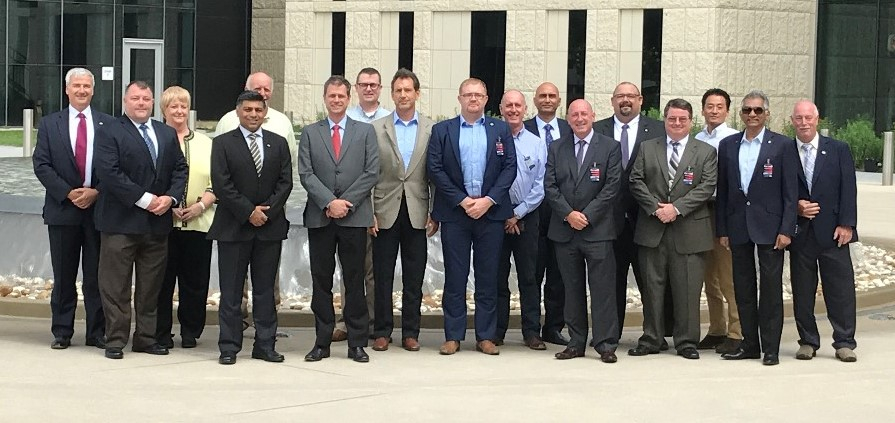
The Ship to Ship Focus Group. From left to right: Rob Drysdale (OCIMF); Caleb Rallis (P66); Tricia Clark (Aramco); Hemant Berry (Ampol); Marc Hopkins (Shell); Will Doolittle (BP); Daniel Hughey (Sea River Maritime/ExxonMobil); Don Johnson (ETA); Will Hayes (Top Fenders); Ian Laws (TKMS); Mo Rattan (Fendercare); John Laidlaw (Dantec); Joe Couillard (AET); Eric Osen (Chevron); Shunichi Ono (Yokohama); Ray Ambrose (Shipload Maritime); Bill Kappelman (Chevron).
Marine Terminal Focus Group
The Marine Terminal Focus Group (MTFG) held their 9th meeting in London on 12–13 July.
Ten members attended either in person or virtually. The first day agenda included an overview of the Guidelines on the Marine Assessment of F(P)SOs; an update on the Port Call Optimisation project by Ben van Scherpenzeel (Port of Rotterdam); the current status of the Marine Terminal Management and Self Assessment (MTMSA) Site Verification Guidelines as well as other standard MTFG agenda items. This was followed by a half-day session discussing feedback from the terminal operators questionnaire, Marine Terminal Information System (MTIS) website analytics and developing next steps in the MTIS strategy.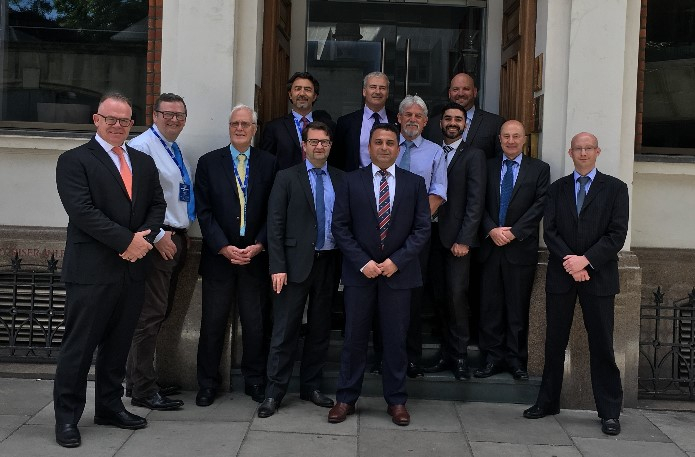
The Marine Terminal Focus Group. From left to right: back row: Salvatore Bianca (ENI); Rob Drysdale (OCIMF); Derek Thompson (Vice Chair, P66); middle row: John Hamilton (BP); Fabiano Dias (OCIMF); Clive Hurford (Shell); Jim Perkin-Ball (MIS); front row: Andy Bickerdike (Chevron); Luke Fisher (Chair, BP); Charles Stuart (NuStar); Eric Berger (Total); Arun Rampal (Caltex).
News from the IMO
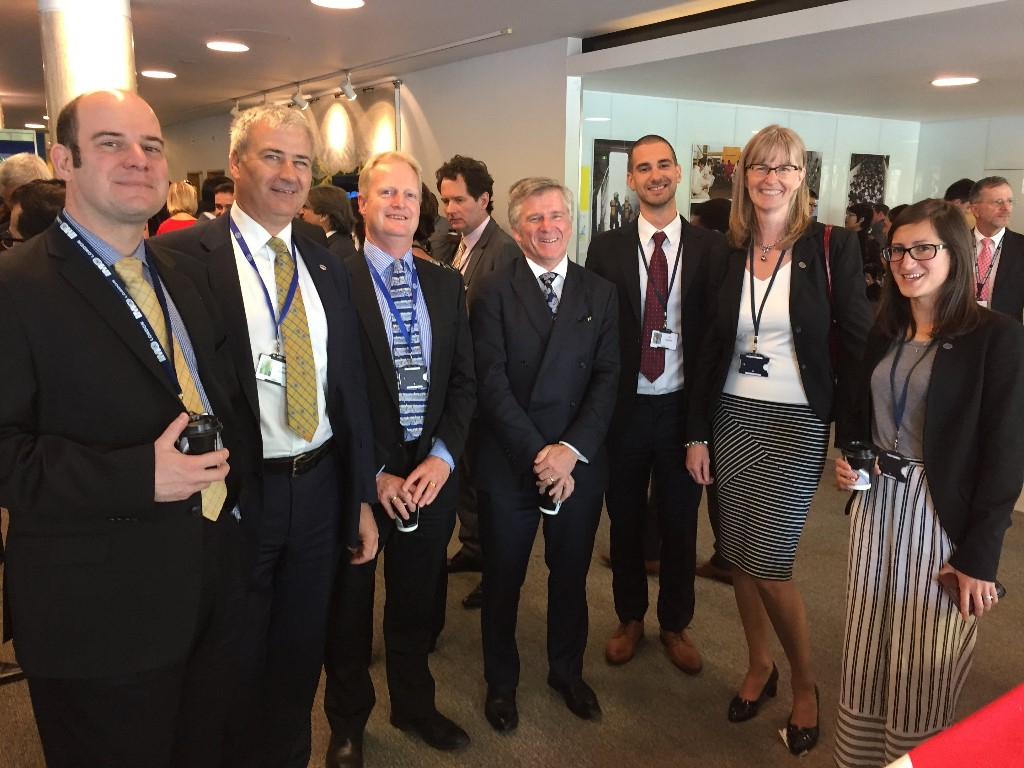 The OCIMF delegation to the MEPC. From left to right: Ricardo Martinez (Chevron); Rob Drysdale (OCIMF); Rob Collier (Shell); Andrew Cassels (OCIMF); Luca Milanes (BP); Alexandra Ebbinghaus (Shell); Jana Ames (BP).
The OCIMF delegation to the MEPC. From left to right: Ricardo Martinez (Chevron); Rob Drysdale (OCIMF); Rob Collier (Shell); Andrew Cassels (OCIMF); Luca Milanes (BP); Alexandra Ebbinghaus (Shell); Jana Ames (BP).
The 71st session of the Marine Environmental Protection Committee (MEPC) was held at the IMO headquarters in London, UK from 3–7 July.
OCIMF Deputy Director and Chief Representative to the IMO Jeremy Hudson was joined by a strong delegation from the OCIMF Secretariat and member companies. It was a busy meeting, with over 155 papers to be discussed and many large delegations from 97 countries, inter-governmental organisations and non-governmental organisations.
The main points of interest were mainly dedicated to Ballast Water Management (BWM), air pollution and energy efficiency, technical and operational measures for enhancing energy efficiency of international shipping, and protection and identification of special areas.
Points of particular interest to OCIMF members.
Unified Interpretation of MARPOL Annex I – Terminal Flush Water
The committee approved a Unified Interpretation to regulation 36.2.10 of MARPOL Annex I. OCIMF had requested this Unified Interpretation, which says how terminal flush water should be categorised and recorded in the oil book. The Unified Interpretation will be released as an MEPC.1/Circular and will be included in MARPOL in due course.
Ballast Water Management (BWM)
The committee discussed the entry into force date for existing vessels. Newly constructed ships (keel laid after 8 September 2017) must have a BWM system fitted.
For existing vessels, the deadline for installation is the first IOPP renewal survey after 8 September 2019, i.e. a two-year delay of entry into force. In reality, this is a little more complicated to take into account circumstances where IOPP has been disconnected from special survey requirements.
For existing small vessels without an IOPP certificate, the installation shall be no later than 8 September 2024.
Measures to reduce risks of use and carriage of heavy fuel oil in the Arctic
Having considered the proposal to ban fuel oil in the Arctic, the committee agreed to include a new output on 'Development of measures to reduce risks of use and carriage of heavy fuel oil as fuel by ships in Arctic waters' in its 2018–2019 biennial agenda. The work has been assigned to the Pollution Prevention and Response (PPR) Sub-Committee, with two sessions needed to complete the work. The output will include various options, from an outright ban of fuel oil to storage in protected spaces, etc.
Schedule for global fuel oil sulphur cap
The discussion around the availability of low sulphur fuel oil in 2020 attracted some strong and diverse opinions. There was little support to reconsider the availability of fuels or even to have a checkpoint in 2019 to validate all the assumptions made in the model (e.g. refinery modifications, fitting of scrubbers, etc.), despite some very passionate interventions from member states declaring that there would certainly be shortages. The committee approved the new output on 'Consistent implementation of regulation 14.1.3 of MARPOL Annex VI', for inclusion in the PPR Sub-Committee's biennial agenda for 2018-2019 and the provisional agenda for PPR 5, with a target completion year of 2019. This covers safety aspects of the new fuels and consistency of fuel quality with a request to the International Organization for Standardization (ISO) to consider a revision of ISO 8217 (2017) if necessary.
Review of the Energy Efficiency Design Index (EEDI) - beyond phase 2
There were further calls to consider accelerating implementation of EEDI phase 3. Many delegations want the minimum power guidelines to be completed before considering earlier implementation because of safety concerns with underpowered vessels built to meet EEDI requirements. A Correspondence Group was created to consider this matter.
ReCAAP ISC releases half-yearly annual report
The Regional Cooperation Agreement on Combating Piracy and Armed Robbery against Ships in Asia Information Sharing Centre (ReCAAP ISC) released its half-yearly report on 18 July.
OCIMF is pleased to note incidents of piracy and armed robbery against ships in Asia continue to decline with the lowest total number of incidents recorded since 2007.
"While the number of incidents of piracy and armed robbery against ships in Asia continued to decline, there is no room for complacency. ReCAAP ISC will continue our engagement with the enforcement authorities and shipping community in the region as we collectively work towards making seas in Asia safe and secure for all," said Mr Masafumi Kuroki, Executive Director of ReCAAP ISC.
The full report can be found here.
Korean Register European Committee
Jeremy Hudson, OCIMF Deputy Director, represented OCIMF at the 14th meeting of the Korean Register European Committee (KREC) in Runnymede, UK on 10 July.
Subjects covered matters of mutual interest between the Korean Register (KR) classification society and the maritime industry. The maritime industry were represented by industry organisations such as OCIMF, INTERTANKO, INTERCARGO, BIMCO and ICS, as well as key KR shipowner members including Bernhard Schulte, Navigate, Andros Maritime, Songa Shipmanagement and Zodiac Maritime. Key KR management were also present, including the new KR Chairman Mr Jeong-kie Lee, who is also IACS Vice Chairman.
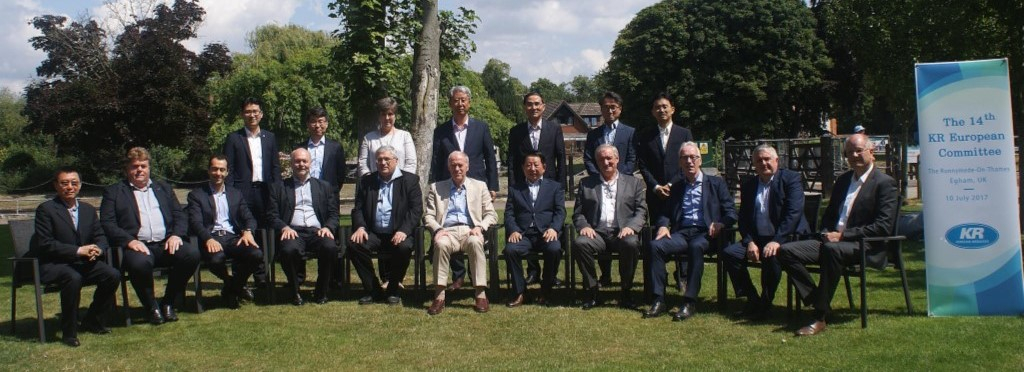
OCIMF Deputy Director Jeremy Hudson, second left, and the delegates of the 14th Korean Register European Committee meeting.
